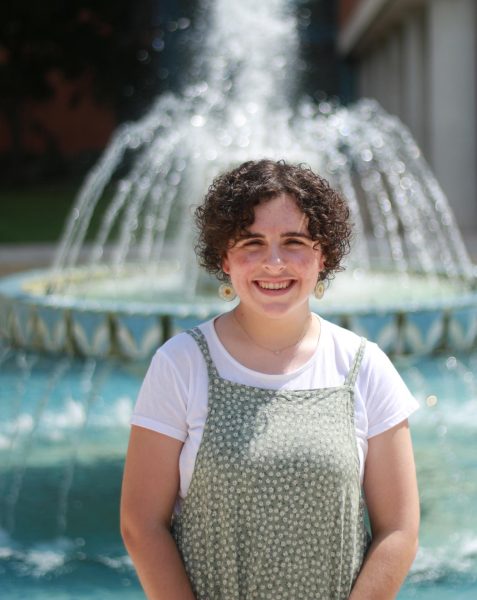photo by Oliver Chapin-Eiserloh
Prior to the start of the semester, students, faculty, and staff were required to sign the ProtecTU Health Pledge, a commitment to practicing COVID-19 safety measures such as social distancing and wearing face coverings. Students who have violated the health pledge have been facing repercussions — faculty and staff are no different.
The process of handling health pledge violations among faculty and staff is not dissimilar to the process for students. Because faculty and staff are university employees with supervisors and access to Human Resources, they have different avenues for reporting instances of pledge violations; however, the anonymous reporting form made available to campus is not limited to reporting student misconduct.
“Anyone on campus could use the anonymous reporting form that the dean’s office has made available. That could be used not only for student-to-student concerns but if you have a concern about a faculty or staff member and a violation,” said Tess Coody-Anders, vice president for Strategic Marketing and Communications.
Just like with students, the consequences for violations vary based on the severity of the violation and the conversation with the supervisor.
“A supervisor would talk to that individual about the violation, just as we do with students to try to understand, you know, do [they] understand the guidance, no. 1? And no. 2, is there a reason why [they] have trouble meeting the criteria? And once those are resolved, making sure everybody understands why it’s important that you do that,” said Coody-Anders.
Any difference in the processes between students and university employees is due to the nature of the individuals’ relationships with the university.
“The nature of the relationship with the university is different for employees and staff,” said Coody-Anders. “It’s an employee-employer relationship, which is guided and governed by laws, Department of Labor laws and rules.”
Throughout the semester, health pledge violations by faculty and staff have not been a big concern. They have been doing a good job of staying in line with the health pledge, with no major incidents of violation. Any concerns brought up have been taken very seriously.
“You know, it is my understanding and perception that they have been. Faculty, in particular, are taking extraordinary steps to protect their students by and large because of the prolonged contact that they have with students where they are conducting in-person classes,” said Coody-Anders. “I saw staff from the facilities team, who were wearing their masks even while they were outside doing individual work on campus. So, I was really impressed by that.”
On the rare occasion that the guidelines of the pledge have been breached, the university has been quick to address the issue.
“We had a staff member raise a concern about a contractor … a contractor group that was working on campus and concerned that they weren’t wearing masks,” said Coody-Anders. “When that was brought to the attention of the appropriate supervising department, the department that engaged that contractor, they took it very seriously, acted the same day and followed up to let the Nerve Center and the individual who had concerns know that they’d taken care of it.”
Orrin Shindell, professor of physics and astronomy, has been teaching on-campus this semester and agrees that most people have had no issues abiding by the health pledge.
“For one thing, there’s actually not very many people around. So the campus is pretty empty,” Shindell said. “The people I do see, everybody’s wearing masks, everybody misses each other and hallways. I think everybody’s been pretty conscientious, both faculty, staff and the students who are around.”
Although the unusual semester has introduced a number of complications, Shindell has found that following the health pledge has not proven to be much of a challenge.
“For the most part, it’s been fine,” said Shindell. “There’s been a couple times, especially in the lab class, where I felt that students were getting too close to each other. Everybody wears masks, so that’s not a question. So when that happens, I try to remind them,” said Shindell. “Everybody’s pretty conscientious about it, so I think it’s just a matter of it not being usual for people.”
Ultimately, the success of the health pledge comes down to trusting members of the Trinity community.
“I think it helps protect us individually, through maintaining our distance from others and understanding that we shouldn’t be in large gatherings. But then also, collectively, it will help our community. If you’re wearing your mask, you’re not allowing your germs to be spreading to those around you,” said Marcy Youngdahl, university physician. “We really are all dependent on each other to adhere to that in order to maintain our own personal safety. But it really relies upon trusting your neighbor, trusting your community to help protect you.”








